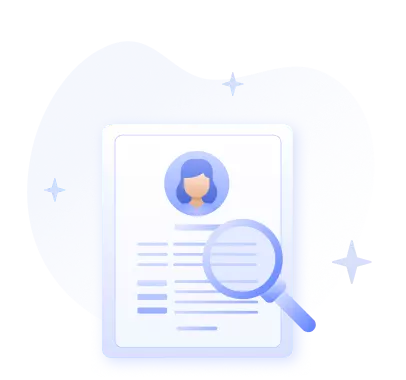Why is Python So Popular?
- Easy to Learn: Python has a simple & intuitive syntax that is easy to learn, even for beginners. The language emphasizes readability & uses indentation to denote code blocks, which makes it easy to understand & follow.
- Versatile: Python can be used for a wide range of tasks, from web development to data analysis to artificial intelligence. This versatility makes it a great language to learn, as it can be applied to many different fields & industries.
- Large Community: Python has a large & active community of developers who contribute to the language & its many libraries. This means that there is a wealth of resources available for learning Python, & a large pool of talent to draw from when hiring Python developers.
- Open Source: Python is open source, which means that it is free to use & distribute. This has helped to make Python accessible to a wide range of users, from students to professionals.
- High Demand: Python is in high demand in many industries, including finance, healthcare, & technology. This means that learning Python can open up many job opportunities & career paths.
What is Python Used For?
- Web Development: Python can be used to build web applications & websites using frameworks like Django & Flask. These frameworks provide a structure for building web applications & handle tasks like URL routing, database management, & user authentication.
- Data Analysis: Python has many powerful libraries for data analysis, such as NumPy, Pandas, & Matplotlib. These libraries allow developers to load, manipulate, & visualize data easily & efficiently.
- Machine Learning: Python is a popular language for machine learning & artificial intelligence. Libraries like TensorFlow & PyTorch make it easy to build & train machine learning models, & Python's simple syntax makes it easy to experiment with different algorithms & techniques.
- Automation: Python can be used to automate repetitive tasks, such as data entry or file management. The language has many built-in functions & libraries that make it easy to work with files, manipulate strings, & interact with web services.
- Game Development: Python can be used to build games using libraries like Pygame. These libraries provide a framework for building 2D games & handle tasks like graphics rendering, sound playback, & user input.
- Scientific Computing: Python is widely used in scientific computing & research. Libraries like SciPy & NumPy provide tools for numerical computing, & Python's simple syntax makes it easy to prototype & test new algorithms.
- Desktop Applications: Python can be used to build desktop applications using libraries like PyQt & wxPython. These libraries provide a framework for building graphical user interfaces & handling tasks like event handling & widget layout.
Why Learn to Use Python?
- High Demand: Python is one of the most in-demand programming languages in the world. Many companies, from startups to large enterprises, use Python for a wide range of tasks, from web development to data analysis. This means that learning Python can open up many job opportunities & career paths.
- Versatility: Python is a versatile language that can be used for many different tasks. Whether you are interested in web development, data analysis, machine learning, or automation, Python has the tools & libraries you need to get started.
- Easy to Learn: Python has a simple & intuitive syntax that is easy to learn, even for beginners. The language emphasizes readability & uses indentation to denote code blocks, which makes it easy to understand & follow. This means that you can start writing useful programs quickly, without having to spend months learning complex syntax & concepts.
- Large Community: Python has a large & active community of developers who contribute to the language & its many libraries. This means that there is a wealth of resources available for learning Python, from online tutorials to user groups & conferences. The community also provides support & guidance for developers of all skill levels, making it easy to get help when you need it.
- Open Source: Python is open source, which means that it is free to use & distribute. This has helped to make Python accessible to a wide range of users, from students to professionals. It also means that you can use Python for any project, without having to worry about licensing fees or restrictions.
- Productivity: Python's simple syntax & powerful libraries make it a highly productive language. You can write programs quickly & efficiently, without having to worry about low-level details like memory management or type checking. This means that you can focus on solving problems & building applications, rather than getting bogged down in technical details.
How Long It Takes to Learn Python
Learning Python can take anywhere from a few weeks to several months, depending on your past programming experience & the amount of time you can dedicate to learning. Here are some general guidelines for how long it might take to learn Python:
- Beginner Level: If you are new to programming, it may take you around 6-8 weeks to learn the basics of Python. This includes learning the syntax, data types, control structures, & basic programming concepts like variables & functions. You should be able to write simple programs & scripts by the end of this period.
- Intermediate Level: If you have some prior programming experience, you may be able to learn Python more quickly. It may take you around 4-6 weeks to become proficient in Python, depending on how much time you can dedicate to learning. At this level, you should be able to write more complex programs & use libraries & frameworks for tasks like web development or data analysis.
- Advanced Level: If you want to become an expert in Python, it may take several months or even years of practice & learning. At this level, you should be able to write efficient & scalable code, use advanced libraries & frameworks, & apply Python to a wide range of domains, from machine learning to game development.
It's important to note that learning Python is an ongoing process, & there is always more to learn. Even experienced Python developers continue to learn new libraries, frameworks, & best practices throughout their careers.
To learn Python efficiently, it's important to have a structured learning plan & to practice regularly. There are many resources available for learning Python, from online tutorials & courses to books & user groups. It's also important to work on projects & solve real-world problems to apply your knowledge & skills.
Overall, the amount of time it takes to learn Python depends on your goals, prior experience, & learning style. However, with dedication & practice, anyone can learn to use Python effectively & efficiently.
What Jobs Need Python?
- Software Developer: Python is a popular language for software development, particularly for web applications & backend systems. Python developers use frameworks like Django & Flask to build scalable & maintainable software systems.
- Data Analyst: Python is widely used in data analysis & data science. Data analysts use Python libraries like Pandas & NumPy to manipulate & analyze large datasets, & libraries like Matplotlib & Seaborn to create data visualizations.
- Machine Learning Engineer: Python is the most popular language for machine learning & artificial intelligence. Machine learning engineers use Python libraries like TensorFlow & PyTorch to build & train machine learning models for tasks like image recognition, natural language processing, & predictive analytics.
- DevOps Engineer: Python is often used in DevOps to automate tasks like server configuration, deployment, & monitoring. DevOps engineers use Python scripts & tools like Ansible & Fabric to streamline the software development lifecycle.
- Quality Assurance Engineer: Python is used in quality assurance to automate testing & bug reporting. QA engineers use Python frameworks like Pytest & Selenium to write & run automated tests for software applications.
- Research Scientist: Python is a popular language for scientific computing & research. Research scientists use Python libraries like SciPy & NumPy for numerical computing, & libraries like Pandas & Scikit-learn for data analysis & machine learning.
- Financial Analyst: Python is used in finance for tasks like algorithmic trading, risk management, & financial modeling. Financial analysts use Python libraries like Pandas & NumPy to analyze financial data & build predictive models.
These are just a few examples of jobs that require Python skills. Python is a versatile language that can be used in many different industries & job roles, from healthcare to education to entertainment.
Choosing Python
Choosing to learn Python can be a great decision for many reasons. Here are some factors to consider when deciding whether Python is the right language for you:
- Your Goals: Consider what you want to achieve by learning Python. Are you interested in web development, data analysis, machine learning, or another field? Python has a wide range of applications, so it's important to choose a language that aligns with your goals & interests.
- Your Background: Consider your prior programming experience & background. If you are new to programming, Python can be a great language to start with due to its simple & intuitive syntax. If you have prior experience with another language, Python may be easier to learn due to its similarities with other languages.
- Job Market Demand: Consider the job market demand for Python skills in your area or industry. Python is a highly sought-after language in many fields, from tech to finance to healthcare. Researching job postings & industry trends can help you gauge the demand for Python skills in your field.
- Community & Resources: Consider the size & activity of the Python community, as well as the availability of resources for learning & development. Python has a large & active community of developers, which means that there are many resources available for learning, from online tutorials to user groups & conferences.
- Project Needs: Consider the specific needs of your projects or applications. Python has a wide range of libraries & frameworks available for different tasks, from web development to data analysis to machine learning. Choosing a language that has the tools & resources you need can make your projects easier & more efficient to develop.
- Personal Preference: Finally, consider your personal preferences & learning style. Python is known for its simplicity & readability, which can make it an enjoyable language to learn & use. If you prefer a more concise & expressive language, Python may be a good fit for you.
Frequently Asked Questions
Is Python a good language for beginners?
Yes, Python is a great language for beginners due to its simple & intuitive syntax, large community, & abundant learning resources.
What are some popular Python libraries & frameworks?
Some popular Python libraries & frameworks include Django & Flask for web development, NumPy & Pandas for data analysis, & TensorFlow & PyTorch for machine learning.
What industries use Python?
Python is used in many industries, including tech, finance, healthcare, education, & entertainment, for a wide range of applications such as web development, data analysis, machine learning, & automation.
Conclusion
In this article, we saw what Python is, why it is so popular, & what it is used for. We have also discussed the benefits of learning Python, how long it takes to learn, & what jobs require Python skills. Python is a versatile & powerful language that can be used for a wide range of tasks, from web development to data analysis to machine learning. Its simple & intuitive syntax, large community, & abundant resources make it a great language for beginners & experienced programmers alike.
Recommended Readings:






